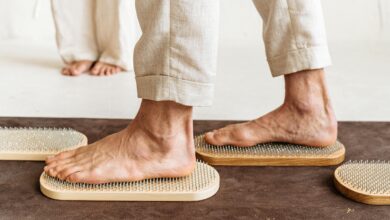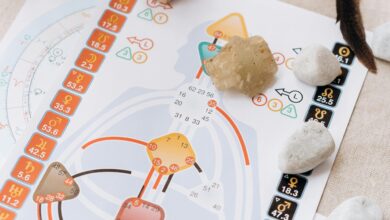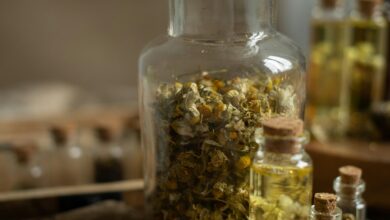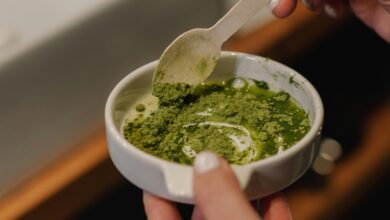The Best Holistic Treatments for Insomnia
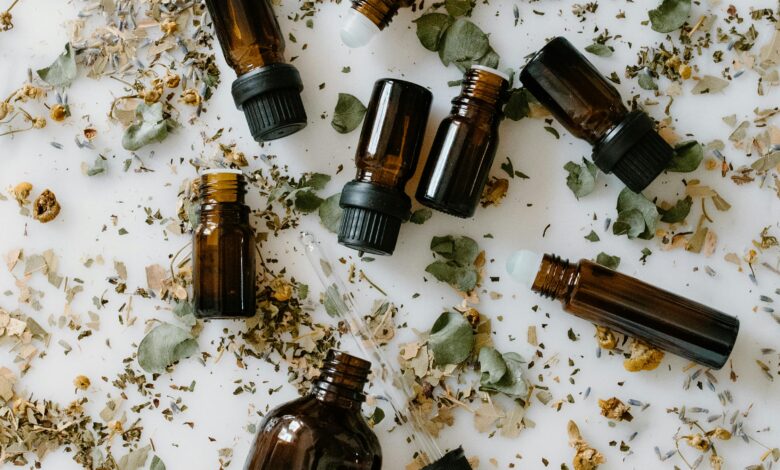
Insomnia, a common sleep disorder affecting millions of people worldwide, can have profound effects on physical health, mental well-being, and overall quality of life. While conventional treatments like prescription medications may provide short-term relief, many individuals are turning to holistic approaches to address the root causes of insomnia and promote long-term healing. Holistic treatments focus on balancing the mind, body, and spirit, offering natural solutions that support restorative sleep without the side effects often associated with pharmaceuticals.
In this guide, we’ll explore some of the best holistic treatments for insomnia, including lifestyle changes, natural remedies, and mind-body practices, to help you achieve deeper, more restful sleep.
What Is Insomnia?
Insomnia is characterized by difficulty falling asleep, staying asleep, or waking up too early and being unable to return to sleep. It can be acute (short-term) or chronic (lasting three months or longer). Common causes include:
- Stress and anxiety
- Poor sleep hygiene
- Irregular sleep schedules
- Underlying medical conditions (e.g., sleep apnea, restless leg syndrome)
- Hormonal imbalances
- Overconsumption of caffeine or alcohol
- Environmental factors (e.g., noise, light, uncomfortable bedding)
Holistic treatments aim to address these underlying causes while promoting relaxation and improving sleep quality naturally.
1. Mindfulness Meditation
How It Helps:
Mindfulness meditation involves focusing on the present moment without judgment, helping to calm racing thoughts and reduce stress—a major contributor to insomnia. Studies show that regular mindfulness practice can improve sleep duration and quality.
How to Practice:
- Find a quiet space and sit comfortably.
- Close your eyes and focus on your breath, noticing each inhale and exhale.
- If your mind wanders, gently bring your attention back to your breathing.
- Start with 5–10 minutes daily, gradually increasing the duration.
Additional Tips:
- Use guided meditation apps like Calm, Headspace, or Insight Timer for structured sessions.
- Practice mindfulness in bed if you struggle to fall asleep.
2. Acupuncture
How It Helps:
Acupuncture, an ancient Chinese therapy, involves inserting thin needles into specific points on the body to balance energy flow (qi). It has been shown to regulate the nervous system, reduce stress, and promote relaxation, making it effective for treating insomnia.
What to Expect:
- Sessions typically last 30–60 minutes.
- A licensed acupuncturist will target points related to sleep, such as those on the hands, feet, and ears.
- Multiple sessions may be needed for optimal results.
Benefits:
- Reduces anxiety and tension.
- Improves melatonin production (the hormone responsible for sleep regulation).
- Enhances overall well-being.
3. Herbal Remedies
Popular Herbs for Sleep:
a) Valerian Root
- Known for its sedative properties, valerian root helps reduce the time it takes to fall asleep and improves sleep quality.
- Available as teas, capsules, or tinctures.
b) Chamomile
- Chamomile tea is a gentle relaxant that soothes the nervous system and promotes drowsiness.
- Contains apigenin, an antioxidant that binds to receptors in the brain to induce calmness.
c) Lavender
- Lavender oil or supplements can reduce anxiety and improve sleep patterns.
- Diffuse lavender essential oil in your bedroom or add a few drops to your pillow.
d) Passionflower
- Often used for mild insomnia, passionflower increases gamma-aminobutyric acid (GABA) levels in the brain, which helps calm overactive minds.
Safety Note:
Consult a healthcare provider before using herbal remedies, especially if you’re taking other medications.
4. Aromatherapy
How It Helps:
Essential oils stimulate the limbic system, the part of the brain responsible for emotions and memory, creating a calming effect conducive to sleep.
Best Essential Oils for Sleep:
- Lavender : Promotes relaxation and reduces stress.
- Bergamot : Eases anxiety and uplifts mood.
- Cedarwood : Grounding and soothing.
- Ylang-Ylang : Balances emotions and induces tranquility.
How to Use:
- Add a few drops of essential oil to a diffuser before bedtime.
- Mix with a carrier oil (like coconut or almond oil) and apply to pulse points.
- Spritz diluted oils onto your sheets or pillow.
5. Yoga and Gentle Stretching
How It Helps:
Yoga combines physical movement, breath control, and meditation to release tension, improve circulation, and calm the nervous system—all of which contribute to better sleep.
Recommended Poses:
- Child’s Pose (Balasana) : Relieves lower back tension and encourages deep breathing.
- Legs-Up-the-Wall Pose (Viparita Karani) : Promotes relaxation and improves blood flow.
- Seated Forward Bend (Paschimottanasana) : Stretches the spine and calms the mind.
Evening Routine:
- Spend 10–15 minutes practicing gentle yoga poses.
- Focus on slow, controlled movements and mindful breathing.
6. Sleep Hygiene Practices
Improving your sleep environment and habits is foundational to overcoming insomnia.
Key Strategies:
- Establish a Consistent Sleep Schedule : Go to bed and wake up at the same time every day, even on weekends.
- Create a Relaxing Bedtime Routine : Engage in calming activities like reading, journaling, or taking a warm bath.
- Optimize Your Bedroom Environment :
- Keep the room cool, dark, and quiet.
- Invest in a comfortable mattress and pillows.
- Remove electronic devices that emit blue light.
- Limit Stimulants : Avoid caffeine, nicotine, and heavy meals close to bedtime.
7. Dietary Adjustments
Certain foods and nutrients can enhance sleep quality, while others may disrupt it.
Foods That Promote Sleep:
- Magnesium-Rich Foods : Spinach, almonds, bananas, and avocados help relax muscles and nerves.
- Tryptophan-Rich Foods : Turkey, chicken, eggs, and dairy products increase serotonin production, which converts to melatonin.
- Complex Carbohydrates : Whole grains like oats and quinoa stabilize blood sugar levels.
Foods to Avoid:
- Sugary snacks and processed foods, which can cause energy spikes.
- Spicy or fatty meals that may lead to indigestion.
Nighttime Snack Ideas:
- A small bowl of oatmeal with honey and banana.
- A glass of warm milk with a pinch of nutmeg.
8. Cognitive Behavioral Therapy for Insomnia (CBT-I)
While not strictly “holistic,” CBT-I is a non-pharmacological approach that addresses the psychological aspects of insomnia.
How It Works:
- Identifies and modifies negative thought patterns and behaviors contributing to sleep problems.
- Teaches relaxation techniques and sleep scheduling strategies.
Benefits:
- Long-lasting results without reliance on medication.
- Can be done individually or through online programs.
9. Sound Therapy
How It Helps:
Sound therapy uses soothing sounds to mask disruptive noises and create a peaceful atmosphere for sleep.
Types of Sound Therapy:
- White Noise Machines : Block out background sounds with consistent frequencies.
- Nature Sounds : Ocean waves, rain, or forest ambiance can lull you to sleep.
- Binaural Beats : Audio tracks designed to synchronize brainwaves for relaxation.
How to Use:
- Play soundscapes or white noise throughout the night.
- Experiment with different types to find what works best for you.
